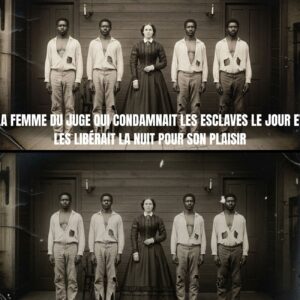
L’ambiance au château de Dammarie-les-Lys a basculé dans une tristesse profonde ce jeudi 1er janvier. Alors que les élèves célébraient le passage à…

Il colonnello affida la figlia nana allo schiavo Dryleg, alto 2,18 metri. Ciò che fa dopo vi sorprenderà. Il fiore nell’abisso: la storia…

Le colonel confie sa fille naine à l’esclave Dryleg, qui mesure 2,18 m. Ce qu’il a fait ensuite vous surprendra. La Fleur dans…

Il colonnello comprò l’ultima schiava sul mercato… Nessuno immaginava cosa ne avrebbe fatto. La giovane schiava, l’ultima della fila, era stata scartata da…

La tombe perdue de Cléopâtre enfin découverte après plus de deux millénaires de recherches — ce que les archéologues ont trouvé à l’intérieur…

Il nous choisissait pour notre pureté, pas pour notre force, pas pour des informations, pas pour notre utilité. Pour notre pureté, comme si…

Charleston. La salle d’audience sentait la sueur et la peur. Le juge Nathaniel Ashford siégeait derrière son imposant bureau en acajou, sa perruque…

Prof d’expression scénique et chanteuse, Marlène Schaff s’est confiée à Closer sur son parcours jusqu’à la Star Academy et surtout les changements qu’elle…

Addio Dolori Articolari: Il “Miracolo” da Bere in 5 Minuti che Rigenera la Cartilagine e Cancella la Rigidità Mattutina Se c’è una cosa…
